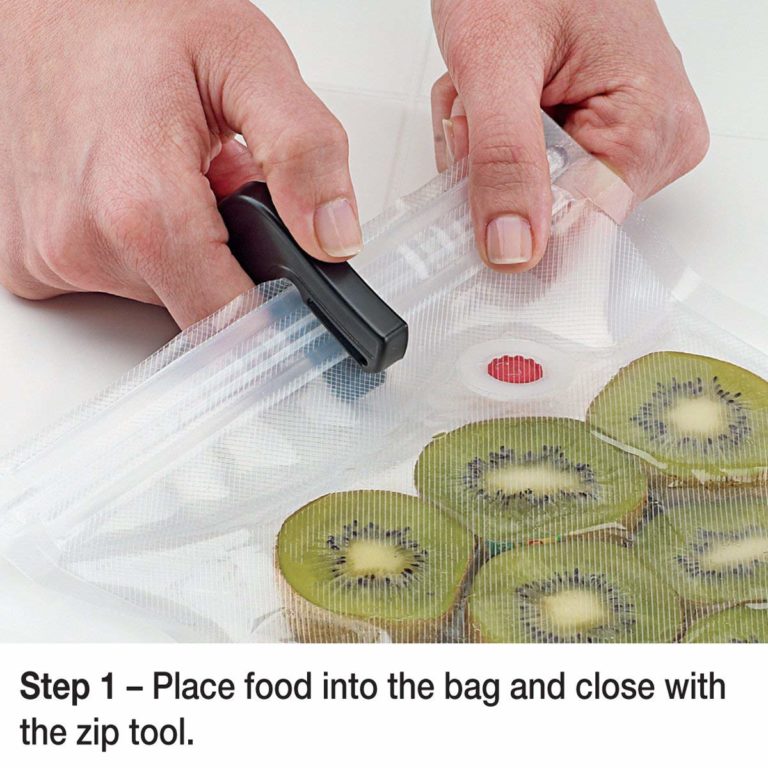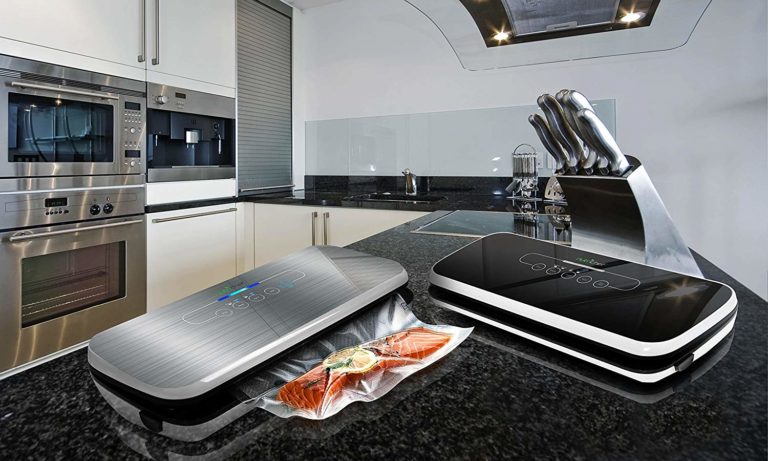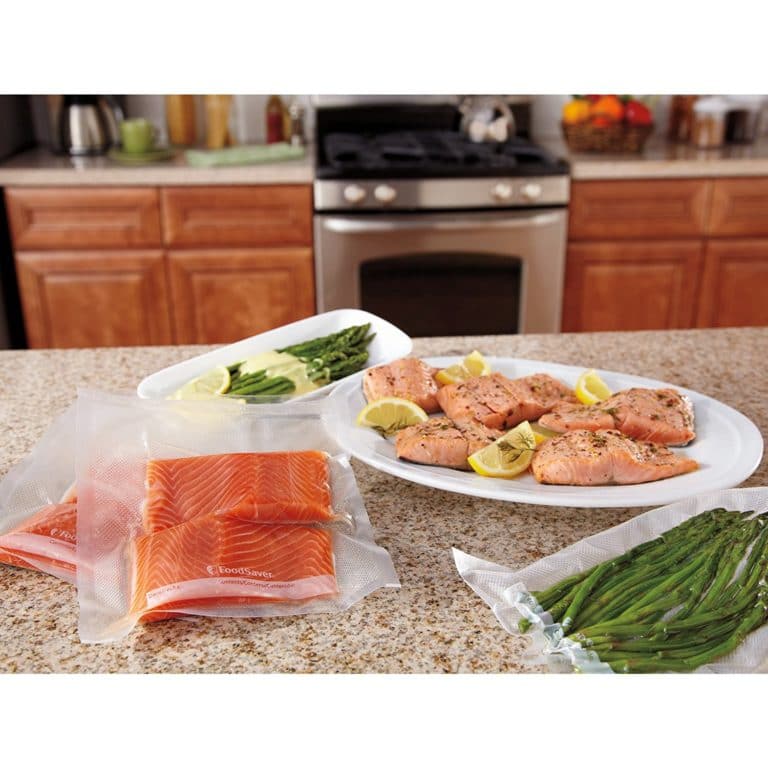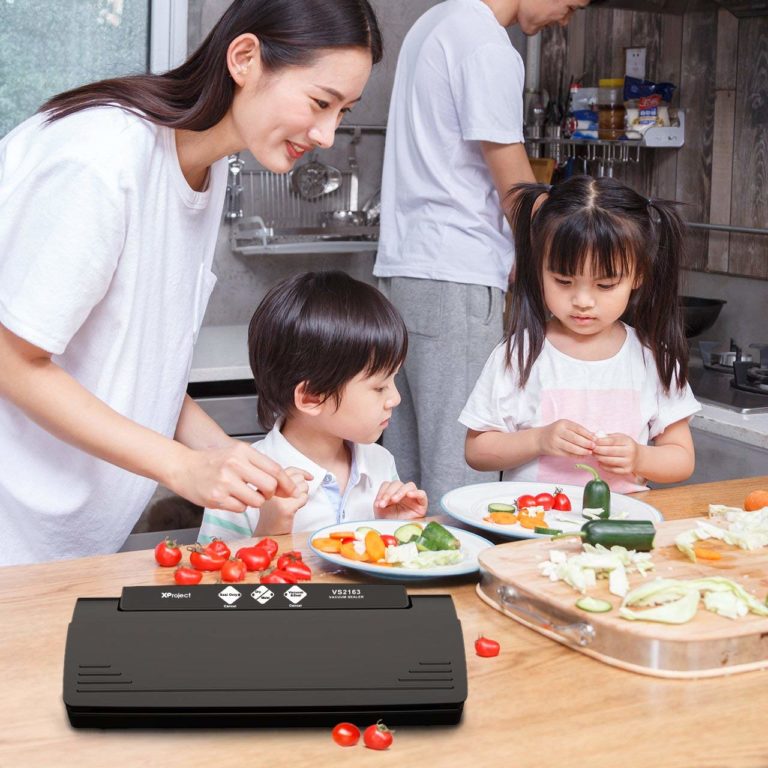Can You Vacuum Seal Oranges? (Answered)
Key Takeaways
- Oranges can be vacuum sealed to prolong their freshness
- This is a good way to store oranges if you want them to last longer
- Vacuum sealing oranges can help preserve their flavor and texture
Have you ever wondered if you could vacuum-seal oranges? Well, wonder no more! In this article, we’ll explore the ins and outs of vacuum-sealing fruit.
We’ll answer all your burning questions, like what fruits can you vacuum seal and freeze? How long does fruit last in a vacuum? What are the benefits of vacuum-sealing fruit?
Does vacuum sealing extend the shelf life of fruit? Is it better to vacuum seal or blanch fruit before freezing? Can all types of fruit be safely sealed in a vacuum bag? Are there any disadvantages to doing so?
And finally, how do I know if my food is still good after being sealed in a vacuum bag for an extended period of time?
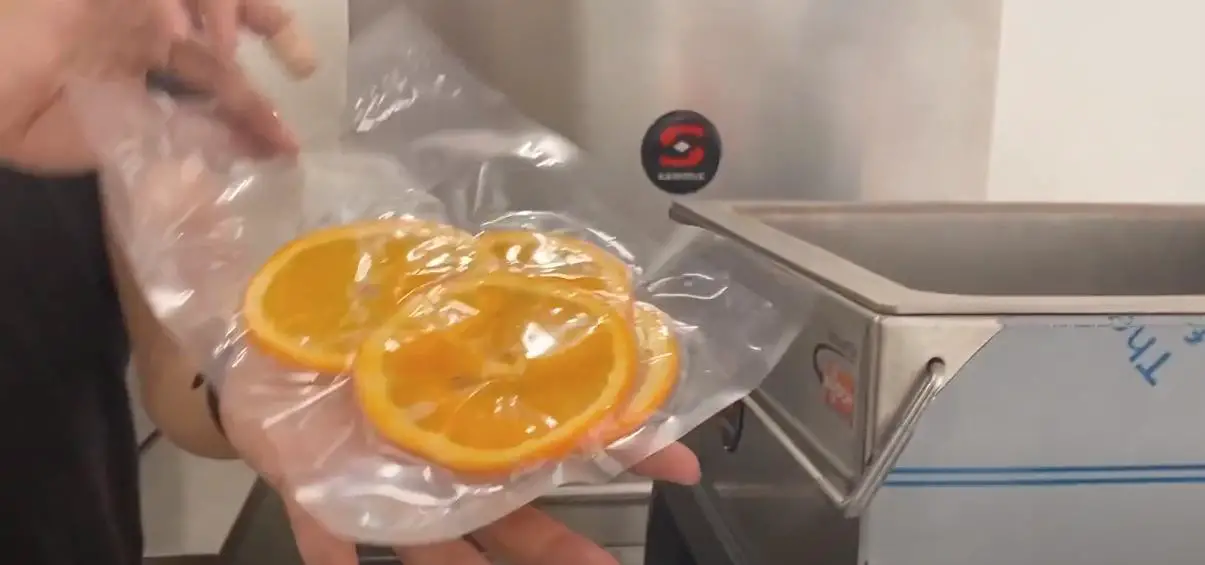
What are the benefits of vacuum-sealing oranges?
Vacuum sealing is a great way to keep oranges fresh. When vacuum sealed, oranges can last in the fridge for up to two weeks, or in the freezer for up to six months.
Vacuum sealing also helps preserve the flavor and nutrients of oranges. Additionally, vacuum sealing is convenient and easy.
Simply place oranges in a sealable bag and then use a vacuum sealer to remove the air from the bag.
How long can you expect vacuum-sealed oranges to last?
Vacuum sealing is a great way to extend the shelf life of oranges and other fruits. By removing the air from around the fruit, vacuum sealing prevents spoilage and extends the fruit’s freshness.
Oranges sealed in a vacuum can last 1-2 weeks longer than non-sealed oranges. This means that you can buy oranges in bulk and seal them for future use. Vacuum-sealed oranges are also great for taking on trips or storing in the fridge for a quick snack.
Are there any fruits that are not suitable for vacuum sealing?
There are some fruits that are not suitable for vacuum sealing. This is because they can release gas as they ripen, which can cause the vacuum seal to break.
Fruits that are not suitable for vacuum sealing include bananas, mangoes, pears, and apricots.
Can you freeze fruit after vacuum sealing it?
When it comes to vacuum sealing, there are a lot of different things that you can do. However, one question that a lot of people have is whether or not they can freeze fruit after sealing it. The answer to this question is yes – you can definitely freeze fruit after sealing it.
There are a few things that you need to keep in mind if you’re going to be freezing your fruit, however.
First of all, you need to make sure that the fruit is washed and dried thoroughly before putting it into the freezer. This will help prevent freezer burn and extend the amount of time that your frozen fruits and vegetables will last.
Additionally, you’ll want to make sure that the vacuum sealer bag is labeled clearly so that you know what’s inside.
How does vacuum sealing affect the shelf life of fruit?
Vacuum sealing is a popular food preservation method that can help to extend the shelf life of fruit.
By removing air from the packaging and sealing it tightly, vacuum sealing can slow down deterioration and keep fruit fresh for a longer period of time.
However, storage conditions and packaging schemes can also have an impact on shelf life, so it is important to consider all factors when choosing how to store your fruit.
Is vacuum-sealing food always effective in preserving it?
Yes, vacuum-sealing food is always effective in preserving it. Vacuum sealing works by removing all of the air from a container before sealing it shut. This prevents oxygen from coming into contact with the food, which can cause it to spoil.
Vacuum sealing is an incredibly effective way to preserve food. In fact, it’s often used by commercial businesses to keep food fresh for long periods of time. If you’re looking to extend the shelf life of your groceries, vacuum sealing is a great option.
What foods cannot be preserved through vacuum sealing?
Although vacuum sealing is a great way to preserve food, there are certain types of foods that don’t work well with this method. Foods that release gases as they go bad are not good candidates for vacuum sealing.
This includes raw onions, garlic, mushrooms, and Cruciferae or Brassicaceae vegetables. While vacuum packaging can extend the shelf life of these foods, it’s not a replacement for traditional preservation methods.
Why do some people prefer to vacuum seal their fruit?
Vacuum sealing is a great way to extend the shelf life of your fruit. Vacuum-sealed bags will eventually allow oxygen to leak through, but vacuum-sealed jars won’t leak oxygen and the lids are usually more durable.
This means that you can enjoy your fruit for a longer period of time without having to worry about it going bad.
What are the disadvantages of storing oranges in a sealed container
When it comes to storing oranges, vacuum sealing them in a container is not always the best option. While it can prolong their shelf life, it can also affect the taste and quality of the fruit. Here are some things to consider before vacuum sealing your oranges.
One of the main disadvantages of storing oranges in a sealed container is that they won’t last as long as if they were stored in an unsealed container. This is because oxygen is necessary for fruit to stay fresh, and sealed containers don’t allow for any air circulation. As a result, your oranges will start to spoil faster and won’t be as juicy or flavorful.
Another downside to vacuum sealing oranges is that it can affect their taste and quality. If you seal them too soon after harvesting, they may not have had time to ripen properly and will be less sweet than usual. Additionally, if you store them for too long in a sealed container, they may begin to lose their flavor and become muted-tasting.
So if you’re considering vacuum sealing your oranges, make sure to take these disadvantages into account.
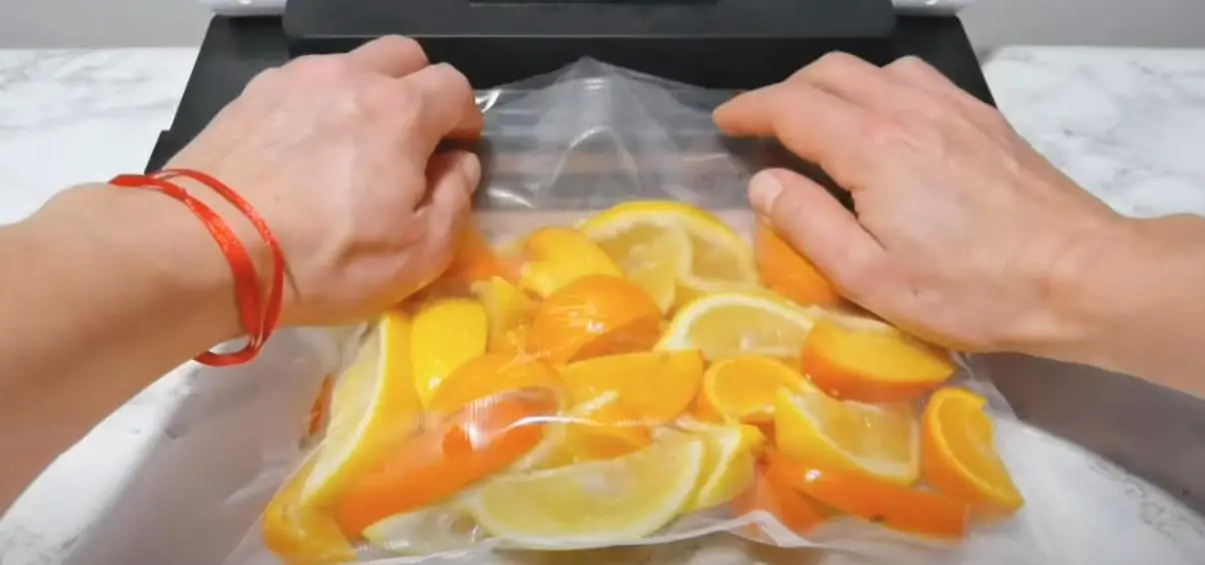
Final Verdict
Yes, you can vacuum seal oranges. This is a great way to keep them fresh for a longer period of time. Vacuum sealing also prevents the oranges from oxidizing and losing their flavor.
